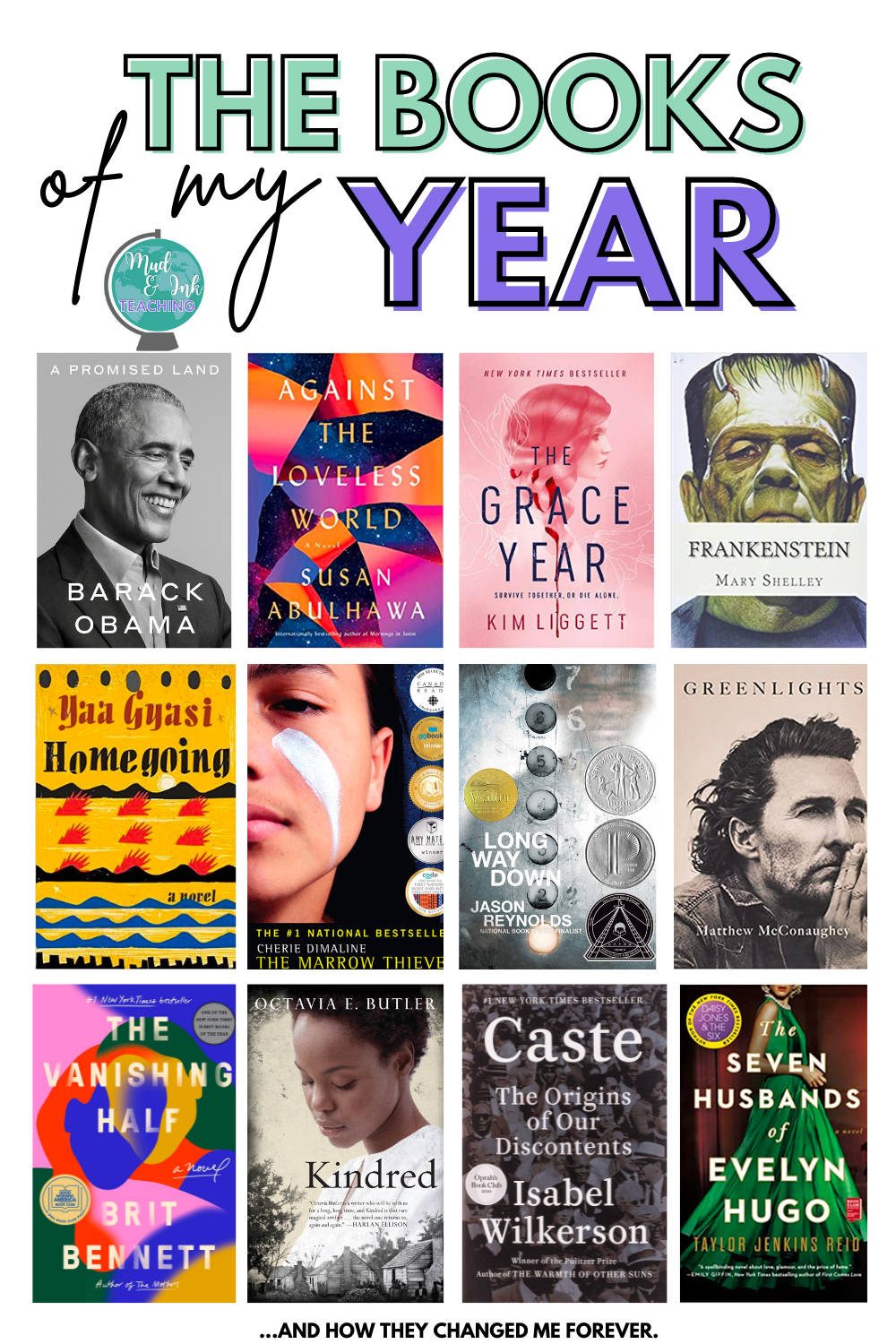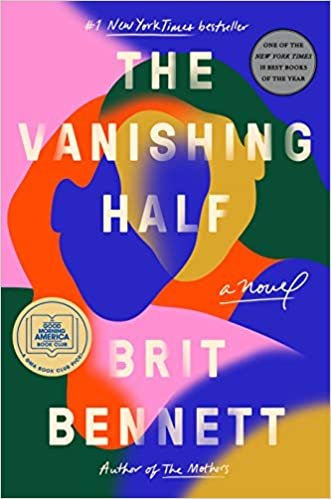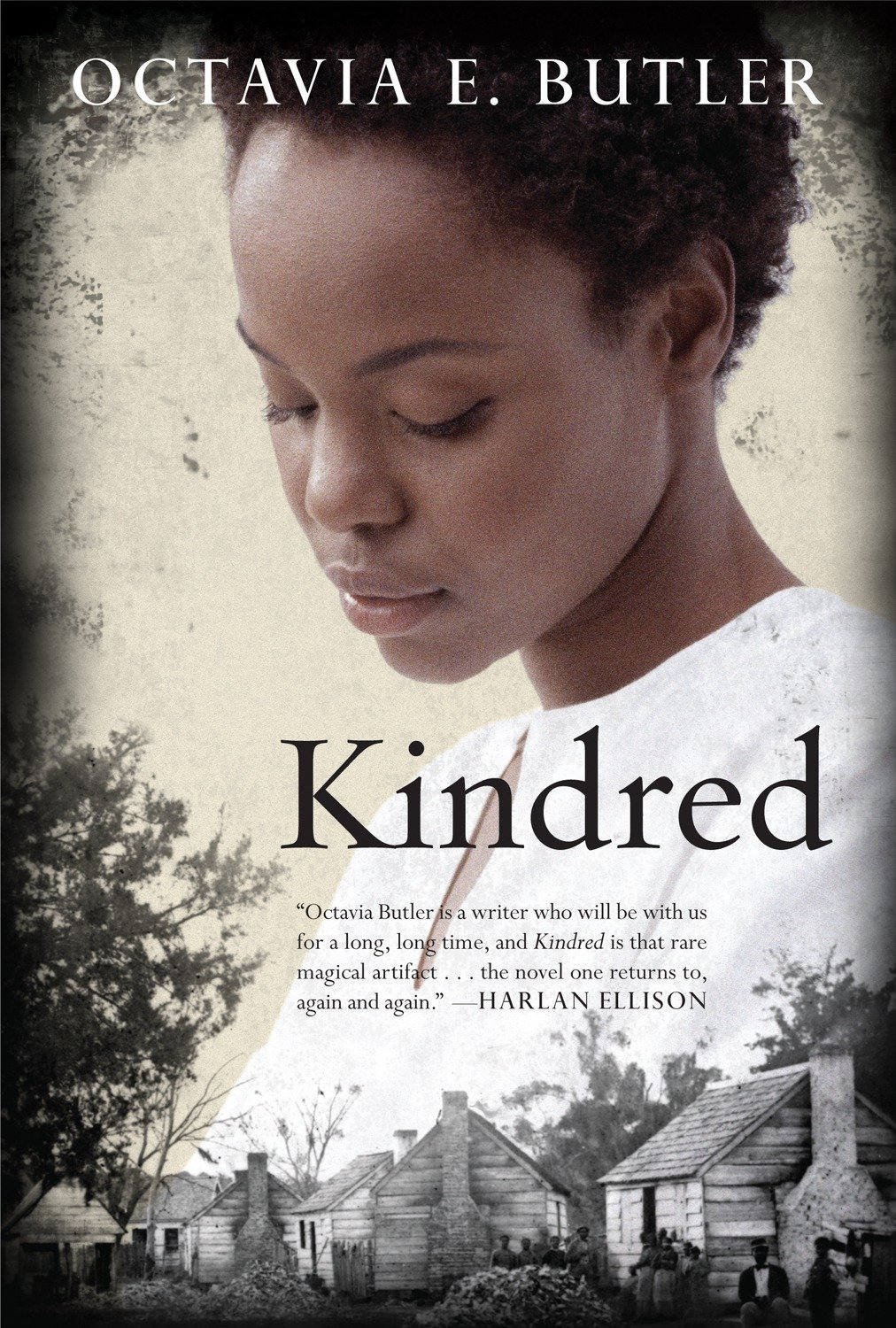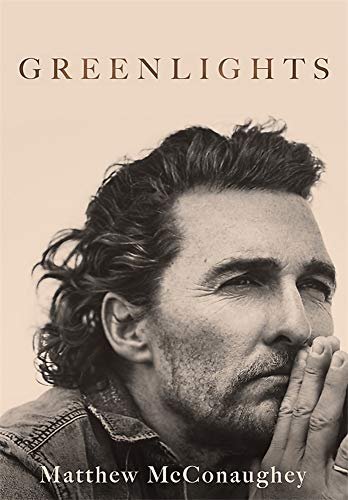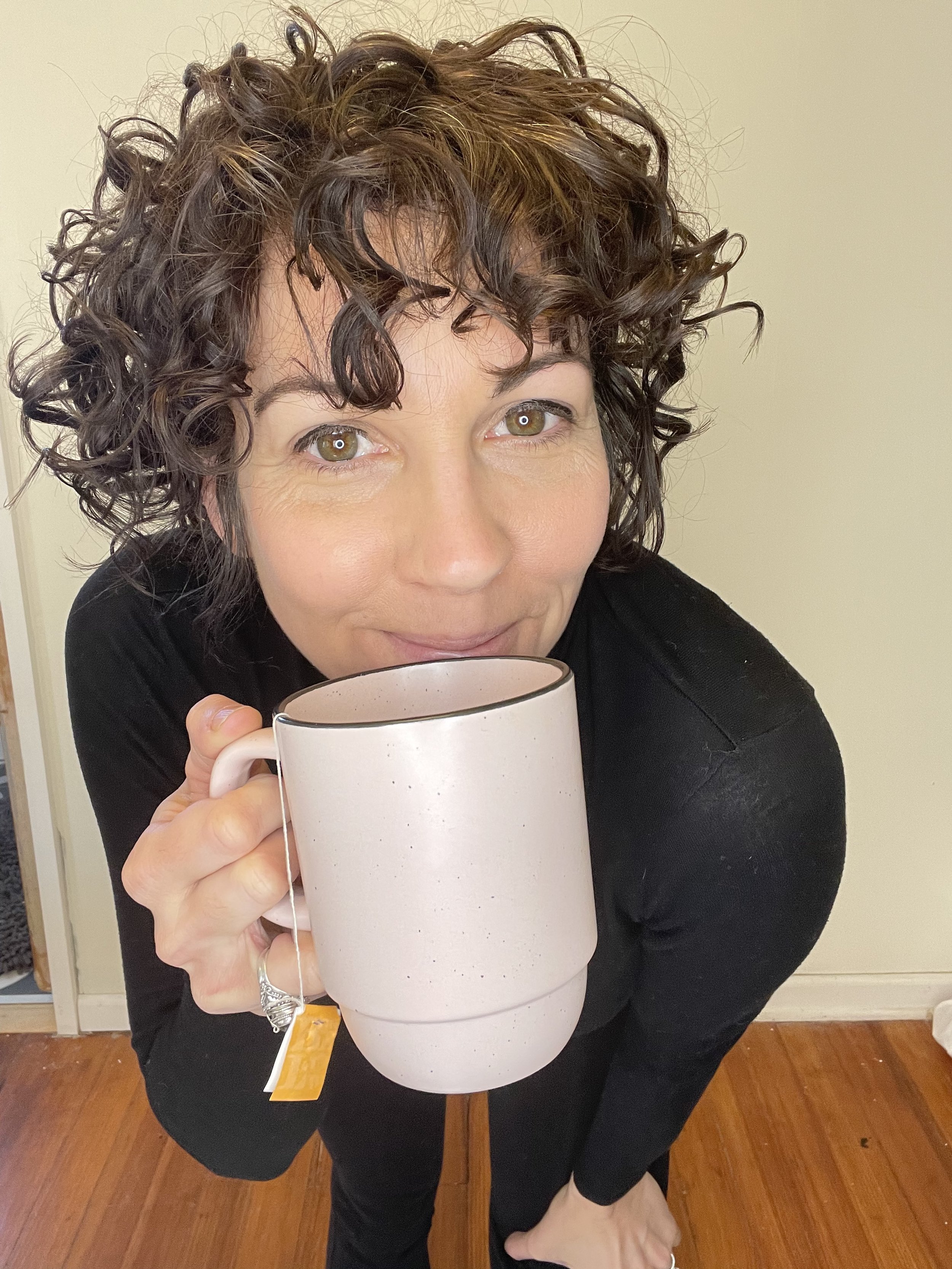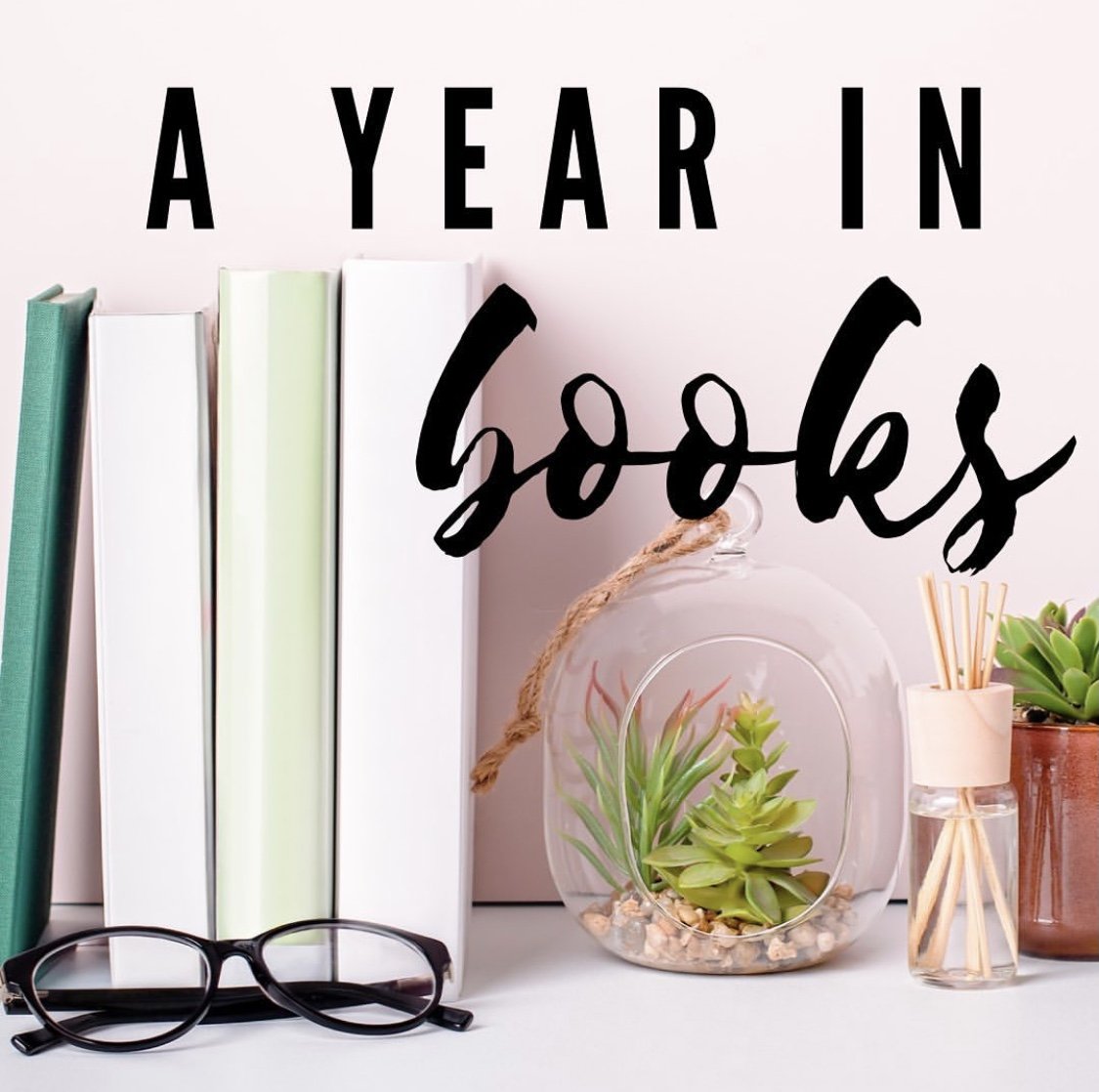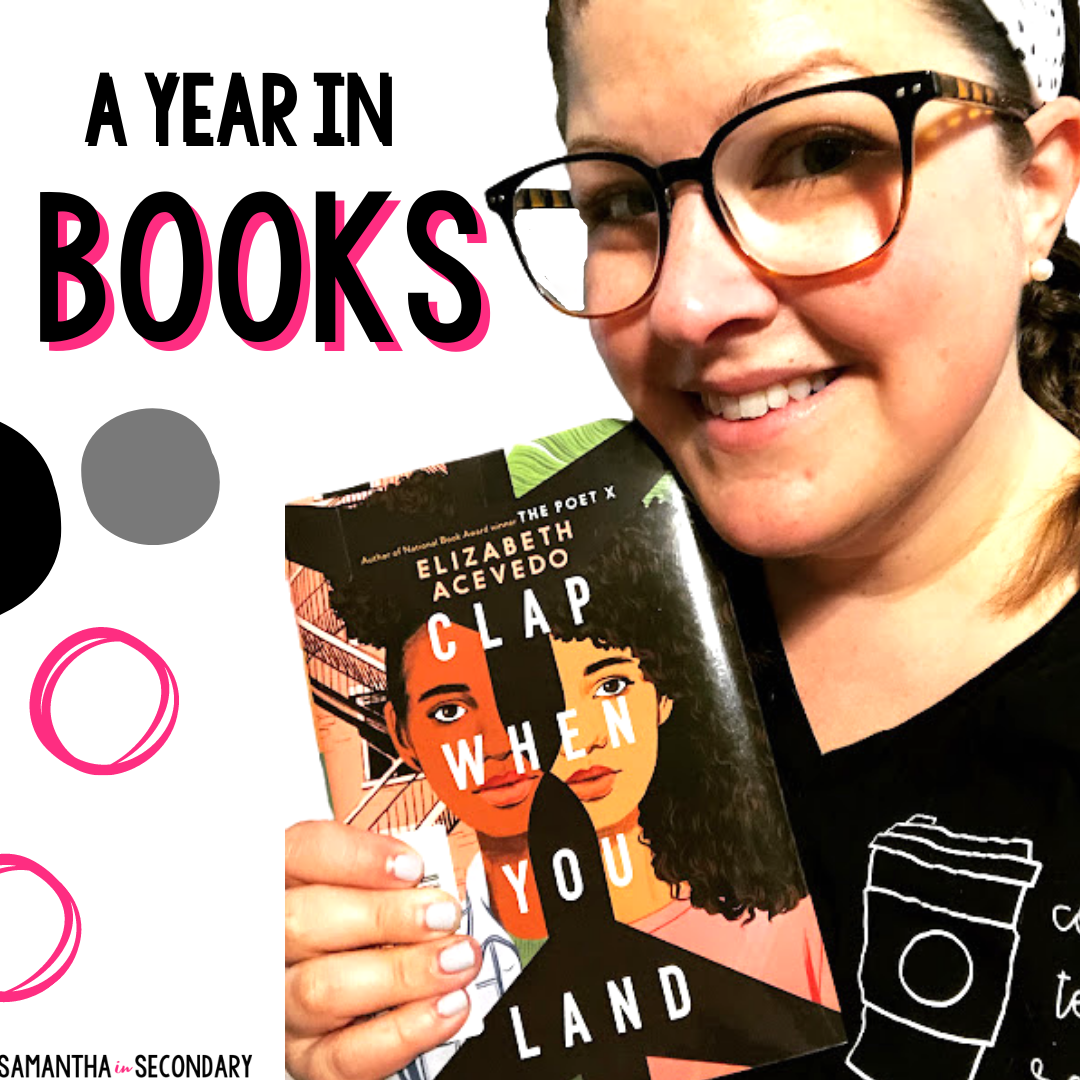A Year of Books: What My Book Stack Has Taught Me
As the days of December count down, I’ve started looking back at the book stack of my year and realizing that this year of books has challenged me in ways than ever before. The authors, subjects, genres, and reasons why each of these books came into my life this year have particularly reflected something about my own growth and the shifting tides of my own life, and I didn’t want the year to pass without meaningfully taking the time to document the impact these books have had on my life.
If this year has been a special year of reading for you, too, I invite you to join me in sharing a blog post or social media post of your own. If you’d like to join our sharing library, simply click here for instructions on how to be included!
DISCLAIMER: This post contains affiliate links to products on Amazon.
If you purchase something after following one of my links, I will earn a small commission from that sale.
THE READER I AM
As someone immersed in the Instagram teacher community, I can’t tell you how often I’ve seen other teachers and book lovers update and share MASSIVE reading lists and felt a smidge of jealousy — how on earth did they have time to read so much? What’s wrong with me that I can’t seem to ever finish anything?
This year and this particular list have taught me something extremely important: I’m getting to know myself as a reader. I love reading on the page, but I also love getting lost in an audiobook while laying next to my toddlers at naptime. I like having multiple titles started at the same time — one tucked in the bathroom cabinet on the off-chance that bathtime is not overshadowed by mopping and I can sneak in a few pages, another on my bedside table, another in a travel bag, and yet another left forgotten underneath the front passenger seat of my car. I’m settling into the identity of a reader that loves reading when the moment and season are right. I read voraciously at some points, and sometimes I can go weeks without picking up a book and be consumed with other things (I love watching TV and listening to podcasts!).
I’ve always given my students permission to openly and uniquely define their own reading lives, but until this year, I don’t think I’ve ever given myself the same permissions. And that includes my reading genres…
For a long time, I have focused on reading books that challenge me and that I can use excerpts from for my classes. Toward the later half of this year, I started giving myself permission to read for fun again, and it was Taylor Jenkins Reid that helped me cross that bridge. I loved Daisy Jones & the Six as well as The Seven Husbands of Evelyn Hugo. These are two books I would have normally passed over, but I’m so happy that I’ve opened myself up again to fun, enjoyable reading.
So here I am: a sporadic, mostly serious, slightly snobby, easily distracted, occasionally obsessive reader. There it is!
GENERATIONAL TRAUMA & WHITE PRIVILEGE
This year, I was notably and differently challenged by Isabel Wilkerson, Yaa Gyasi, and Octavia Butler to reckon with the invisible, but very real, long-term effects of generational trauma. Each of these authors and reading experiences was eye-opening for me, and in a lot of ways, I’m embarrassed and frustrated that it has taken so long for many of these realities to dawn on me. Wilkerson shone a light on my privilege as an “upper caste” member in a way that I’ve never seen before. It was heartbreaking to reflect on my ancestors as slaveholders and perpetrators of Nazism in Germany, but what never occurred to me was how those two historical events were connected. It never occurred to me how much economic benefit has been passed along as someone that was historically upper cast and, on the other hand, how much pain, debt, and trauma was passed along throught the families of the lower caste. Kindred gave an up close look at not only the physical traumas of slavery, but the emotional turmoil of family separation, time after time after time.
In school, we learned that slavery happened. And then it was over. The end.
Through Kindred and Homegoing, I’ve started to see what I should have learned a long time ago: American slavery existed for four to five GENERATIONS of families. The psychological harm, the physical pain, the separation of families, the erasure of identity — all of these atrocities were ongoing and collectively accepted as a way of life.
In Caste, Wilkerson looks at systems of oppression in three areas of world history: the caste system of India, American slavery, and Nazi Germany. In one chapter I’ll never forget, she outlines a conversation among Nazi politicians as they’re organizing plans for concentration camps based on America’s Jim Crow laws. In an NPR interview with Terry Gross, Wilkerson says:
“they [Nazis] sent researchers to study America's Jim Crow laws. They actually sent researchers to America to study how Americans had subjugated African Americans, what would be considered the subordinated caste. And they actually debated and consulted American law as they were devising the Nuremberg Laws and as they were looking at those laws in the United States.”
Post-war Germany has made a concerted effort to condone the past, create memorials that require the people of the present to face the horrors of the past. I’m not so sure we’ve done the same here in America: we defend confederate statues, fly the confederate flag, and pass laws banning teaching the truth about slavery and the origins of our nation.
These books coupled with the turmoil of this year have been jarringly painful, but also transformative in every part of my life. All three are five-star recommendations and must-reads for teachers.
READING IS TRAVEL
In yet another year that hindered my normal international travels, reading stepped in to help fill the gap in my heart. Of all the things I loved about A Promised Land, I loved the chapters where Obama shared about international policy, going to countries around the world and speaking to college students, and the moments where he took a step outside the US to look at our nation from the outside. Susan Abulhawa’s Against the Loveless World was a trip around the Middle East and truly my first time reading about the Palestinian experience. Both of these books immersed me as a reader in different ways and were just what I needed to have a virtual travel experience. It’s easy to get caught up inside ourselves here in the US, and reading around the world reminds me to zoom out and remember how much is happening all around the world at any given moment.
NEW TO ME YA NOVELS
I know, I know. I’m an English teacher and maybe this should be different, but I’m not a huge fan of the Young Adult genre. Let’s just say, I’m pretty picky when it comes to finding a YA book that I will love. Well, this year, I did just that! In preparation for our Teaching Dystopia Festival, I picked up The Marrow Thieves and The Grace Year. I loved both of these and added them quickly to my list for dystopian choice novel or literature circle units. I picked up Long Way Down and Punching the Air at the recommendation of two of the teachers that I’m coaching and LOVED both so very much! We found creative ways to use them for close reading and pairing them with classics to give much needed context and juxtaposition. Finally, just before the year ended, I took a chance on Brightly Burning: a sci-fi adaptation of Jane Eyre. As a Jane enthusiast (okay, obsessed fan!), I was very hesitant, but I am so glad I let go of my expectations and let my guard down. This was one of my FAVORITES this year and it was such an enjoyable ride through Jane from a totally new angle!
TWO BIG SURPRISES
Matthew McConaughey can tell a story.
I’ve never read Frankenstein.
Both of these books were complete and total surprises to me. First, McConaughey. This memoir was part story, part journal, part poetry, part pump-up motivational speech, and all kinds of fun. I felt like this was a ride from start to finish.
Frankenstein on the other hand — WHY HAVE YOU ALL BEEN HOLDING OUT ON ME? Why is this not in every single high school in America? How have I never gotten the chance to teach it? Why oh why have I been cheated?! All outrage aside, I adored Frank. I loved everything about the potential it holds with an essential question about whether or not monsters are born or made. My coaching client and I have discussed the many parallels with the justice system, the connotation of the word “monster”, and the opportunities to teach point-of-view.
PROFESSIONAL DEVELOPMENT
Every year, I try to read through some new PD books alongside my other reads, and this year, I flipped through a TON but only finished three. These three. Each was enlightening in their own right. If you’re new to abolitionist teaching, you need to pick up We Want to Do More than Survive. If you’re constantly scratching your head trying to figure out the next right move with your grammar and sentence teaching strategy, Between the Commas would be a great next read for you. And if you’re clinging on by an unraveling thread, a little wonder might be the medicine you need. Keeping the Wonder is a guidebook that will help you at all stages of your career and breathe new life into tired lessons.
A YEAR IN BOOKS: Teachers Share Their Lists
Looking for more book stories and recommendations from your fellow teachers? Here’s what your colleagues had to share! Have a year of books story of your own to share? Join us here!
